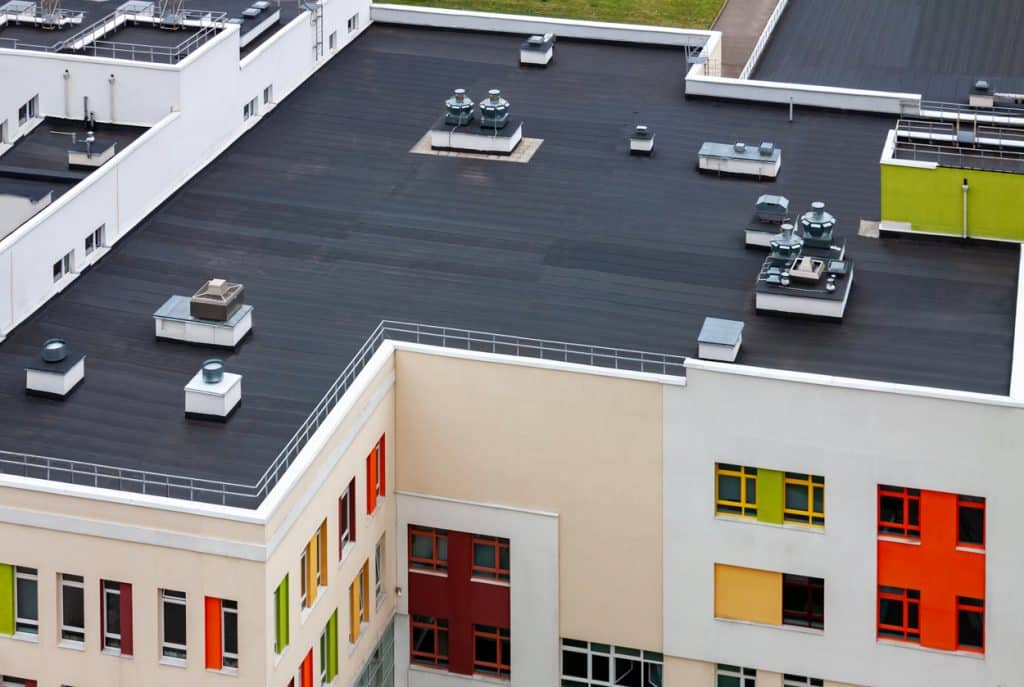When it comes to roofing a commercial building, there are many factors to consider. One of your most important decisions is what material to use. Each type of material has its benefits and drawbacks, so choosing the right one for your specific situation is essential. This blog post will look at the different types of commercial roofing materials and their benefits.
Things to Consider
Before you choose your materials, there are a few things you should consider:
What type of climate will your building be exposed to?
When selecting commercial roofing materials, it is vital to factor in the local climate. An area’s climate can significantly impact the type of roofing material used for application. Depending on the region, certain materials may be more susceptible to extreme temperatures or require frequent maintenance to maintain their integrity. In warmer climates, for example, metal roofs can become too hot and cause discomfort in the building’s interior, while in colder climates, they can become brittle and crack due to cold weather. Similarly, shingle roofs are vulnerable to high winds and heavy rainfall in areas with stronger storms.
What shape should you use?
The shape of a commercial roof is also an important consideration. Different shapes will require different materials, so it’s important to factor in the size and shape of your building when selecting a material. For example, built-up or modified bitumen on flat roofs are popular choices that provide strong protection from the elements while resisting water leakage. Asphalt shingles are a popular choice on steep-sloped roofs because they are relatively inexpensive and provide good durability.
What do local building codes say?
Another thing to consider is the local building codes. Different areas may have regulations that specify which materials can be used for certain commercial buildings. It’s important to familiarize yourself with these rules before deciding the type of material you will use.
What kind of business are you running?
Finally, the type of business you’re running needs to be considered when selecting roofing materials. Different companies have different needs and may have varying levels of exposure to the elements. For example, a retail store may not require the same level of protection as a factory or warehouse exposed to higher heat, cold, and moisture levels.
The Different Types of Commercial Roofing Materials
Once you’ve taken all of these factors into consideration, it’s time to look at the different types of commercial roofing materials available:
Metal Roofing
Metal roofing is the most popular choice for commercial buildings, and it’s strong and can last up to 50 years with minimal maintenance. It’s also more energy efficient than other materials, so it can help you save money on energy costs over time. The downside of metal roofing is that it requires more maintenance than other materials.
Single-Ply Membrane Roofing
Single-ply membrane roofing is one of the most cost-effective options for commercial buildings. It can last up to 25 years with minimal maintenance and provides excellent waterproofing and protection from UV rays. The downside of single-ply membranes is that they are not as durable as other materials and can be prone to punctures or tears.
TPO/EPDM Roofing
TPO (thermoplastic polyolefin) and EPDM (ethylene propylene diene monomer) roofing are excellent for commercial roofs. They are lightweight, flexible, and long-lasting. TPO/EPDM roofing is also heat-reflective, making it more energy-efficient than other materials. The downside of these roofing options is that they are less durable than metal roofing and can be prone to punctures or tears.
Asphalt Shingles
Asphalt shingle roofing is one of the most affordable options for commercial roofs, and they are easy to install and can last up to 20 years with minimal maintenance. The downside of asphalt shingle roofing is that they are not as durable as other materials and can be prone to damage from wind, rain, hail, and UV rays.
PVC Roofing
PVC roofing is a cost-effective, lightweight option for commercial roofs. It can last up to 30 years with minimal maintenance and provides excellent waterproofing protection. It’s popular for commercial roofing because it is highly durable, long-lasting, fire-resistant, weldable, recyclable, and affordable compared to other metal or asphalt roofing materials.
Modified Bitumen Roofing System
A modified bitumen roofing system is a popular choice for commercial roofing because of its superior durability, flexibility, and temperature resistance. Modified bitumen roofs are made from a combination of asphalt and a chemical polymer that make them particularly suited for flat or low-slope buildings. The downside of modified bitumen roofs is that they are more expensive than other materials and require specialized installation.
Signature Exteriors Can Help
As you can see, there are a variety of different types of commercial roofing materials available. Each has its benefits and drawbacks, so it’s important to evaluate your needs and budget before deciding.
If you’re unsure which commercial roofing material is suitable for your business, the experienced team at Signature Exteriors can help. We can assess your needs and recommend the best solution for your budget. Contact us today to get started!
We look forward to helping you find the perfect roofing solution for your business!

